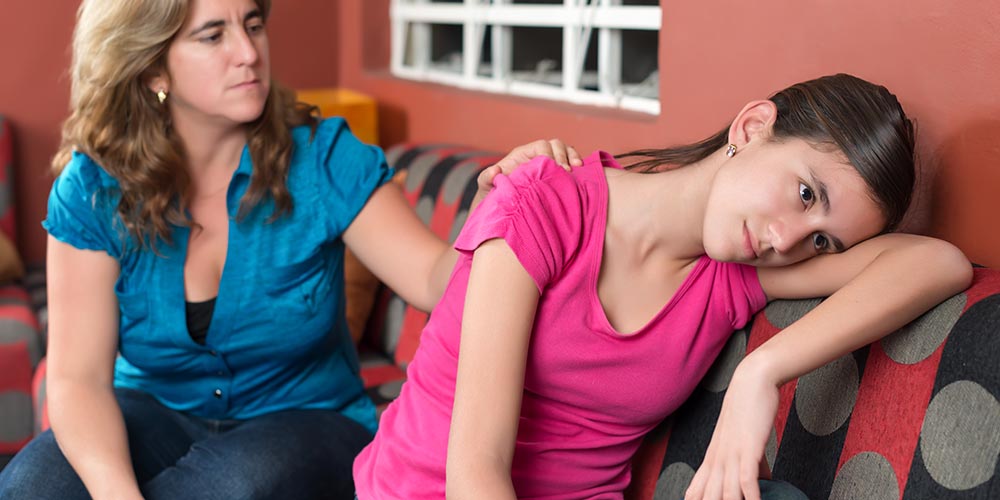Separation anxiety disorder is when a child becomes excessively anxious when separated from its parents.
However, it is quite natural for young children to feel anxious, become clingy, throw tantrums and cry when separated from parents. Separation anxiety is considered to a normal developmental phase for infants and toddlers. Although young children often experience a period of separation anxiety, most of them outgrow it by the age of three or four.
However, in some children separation anxiety remains palpable for a longer period, irrespective of their parents’ best efforts. Separation anxiety creates impediments in the child’s daily activities including interaction with other children at school or in the neighborhood.
More often than not, due to lack of information, a child exhibiting separation anxiety is viewed as ‘spoiled’ or ‘clingy. Some parents even punish their children for such behavior. Therefore, recognizing the signs or symptoms of separation anxiety becomes imperative.
The primary difference between separation anxiety disorder and normal separation anxiety is the potency and vigor of the child’s fears. On should find out whether these fears keep them away from normal activities. Kids with separation anxiety disorder become irritated or agitated by the very thought of being separated from parents or a caregiver. They may pretend to be sick and try to dodge going to school or playing with friends.
When symptoms become strong enough then it is time to seek help from experts. When ignored, these symptoms can exacerbate. But, no matter how severe the symptoms become due to separation anxiety, it is treatable and parents can do numerous things to make their children feel safer.
Experts say that to identify separation anxiety disorder in children, parents should keep a track of their behavior. Children feel safe with their parents and caregivers. So it is quite natural for a child to feel anxious while separating from their parents and caregivers. Eventually they learn to adapt to the situation. But, if the child fails to adapt to the situation that is when separation anxiety disorder stems in the child’s mind.
Children who grow up with separation anxiety face relationship issues in their adulthood. Because the fear of being left alone or getting abandoned becomes deeply rooted in their minds. It evolves as one of their personality traits. Most children who grow up with divorced parents or in an orphanage have greater risk of developing separation anxiety disorder.
What are the symptoms of separation anxiety disorder?
Although there may be a wide range of symptoms for separation anxiety—from mild to the more severe ones— a few symptoms stand out among them:
- Clinging to caregivers
- Refusal to go to school
- Physical sickness such as stomach pain and headache
- Reluctance to go to sleep
- Recurrent and excessive distress about being away from home or loved ones
- Daunted with the thought of something terrible is going to happen to loved ones
- Nightmares about separation from loved ones
- Worry that an unpredicted event will lead to permanent separation
- Not wanting to be home alone without a parent or a loved one in the house
Identifying and diagnosing separation anxiety disorder in children
Parents and caregivers should track abnormalities in their child’s behavior and consult a pediatrician or healthcare provider at the earliest. They can recommend the child to the right child psychologist who has expertise in treating separation anxiety disorder. A thorough diagnosis determines whether the child is enduring separation anxiety disorder or undergoing a normal developmental stage.
Treatment available for separations anxiety disorder
A child psychiatrist or a psychologist medically evaluates a child on the basis of physical complaints and collating all behavioral information from school, home and during clinical visit. Medication and therapies work well for separations anxiety disorder. Therapies may include talk therapy, play therapy, family counseling and school based counseling.
Seek help for behavioral health issues
No parent would like their children to remain in acute distress and anxiety. So, it is better if you look for the right intervention program at the earliest. Timely intervention will help your child to overcome any overwhelming emotions due to separation anxiety disorder.
So, if your child is battling with separation anxiety, we are here to help. Athena Behavioral Health is one of leading names in helping people combat mental health issues and addiction problems in India. We provide customized treatment programs based on a thorough medical assessment of our patients. We have customized residential and outpatient treatment programs. To know more contact us now on our 24/7 helpline number 9289086193 and get immediate assistance.






